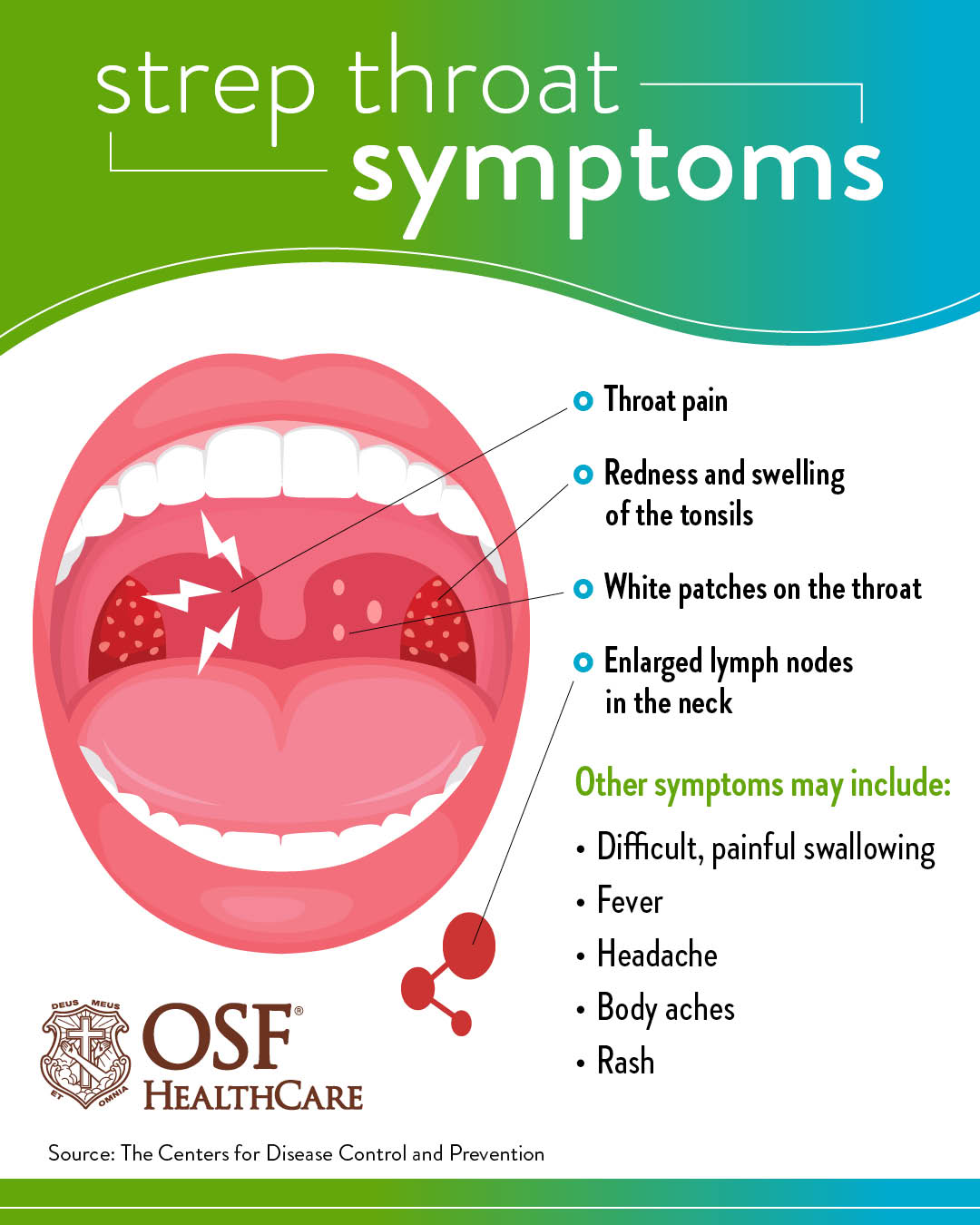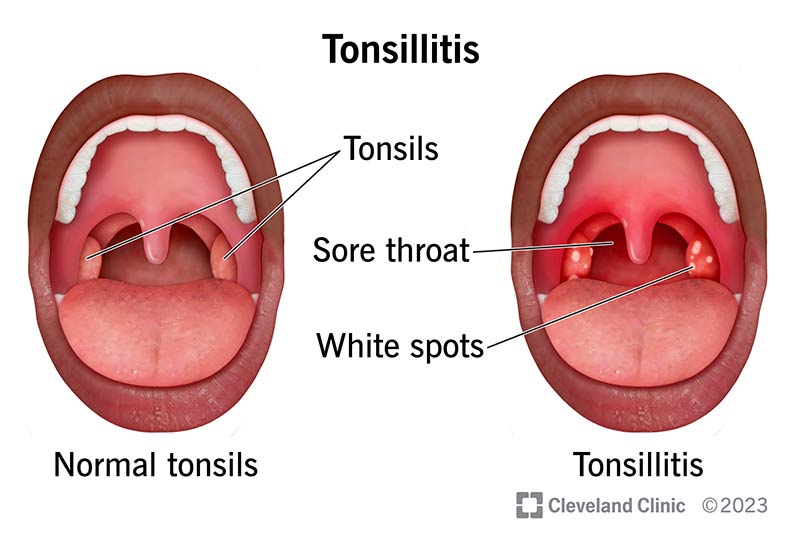Antwort Can throat infection go away on its own? Weitere Antworten – Should I go to work with a sore throat and cough
But if you also have a cough and sore throat, you might have a cold. That means you're contagious, so take the day off. Remember that a cough by itself doesn't necessarily mean a cold. If you just have a tickle in the back of your throat without the other symptoms, that's a sign of allergies, and you're not contagious.It will get better on its own—without antibiotics. Antibiotics won't help you get better if you have a cold. When antibiotics aren't needed, they won't help you, and their side effects could still cause harm. Side effects can range from mild reactions, like a rash, to more serious health problems.Stress or burn-out can result in cold or flu-like symptoms causing your immune system to run on empty. Poor hygiene, i.e., lack of hand washing, sharing utensils, not using tissues, and disposing of them. Your environment – dry air, exposure to smoke, touching contaminated surfaces. Lack of sleep.
How long does a cold last : Most cold symptoms go away within a week in most cases. If you still feel sick after 7 days, consult with your provider. Your provider may check you for a sinus infection, allergies, or other medical problem.
How do you know the difference between a viral and bacterial throat infection
Knowing whether your sore throat is viral or bacterial is usually determined by symptoms. Viral sore throats usually consist of a cough, swelling in the throat, and runny nose whereas bacterial sore throats are typically accompanied with nausea and vomiting, stomach ache, and there is no cough.
How long does a sore throat last for : Sore throat caused by viral infections usually lasts four to five days. During this time, treatments to reduce pain may be helpful. Several therapies can help to relieve throat pain. Pain medication — Over-the-counter pain relievers can provide fast and effective relief of sore throat pain.
Bacterial Infections
- Symptoms persist longer than the expected 10-14 days a virus tends to last.
- Fever is higher than one might typically expect from a virus.
- Fever gets worse a few days into the illness rather than improving.
You do not normally need antibiotics for a sore throat because they will not usually relieve your symptoms or speed up your recovery. You'll only be given antibiotics if you could have a bacterial infection.
How do you know the difference between a cold and strep throat
An examination of cold versus strep throat reveals that while some symptoms may overlap, there are differences. For example, unlike a cold, strep throat does not cause a cough or runny nose. Strep throat also causes signs in the mouth and throat that do not occur with a cold, such as white streaks on the tonsils.In such cases, it can take 14 days or more to fully recover. When infection occurs, a cold goes through four characteristic stages: incubation, early symptoms, peak symptoms, and recovery. As there is no cure for the common cold, treatment is focused on rest, fluids, and symptom relief.Honey and lemon
A mixture of lemon juice and honey is packed with natural antibacterial and pain-relieving properties. Honey reduces swelling in the throat while lemon juice breaks up mucus and provides pain relief. Lemon also contains a lot of vitamin C, which boosts your immune system to help wipe out the infection.
Antibiotics can shorten the duration of a sore throat quickly. They may help reduce pain and inflammation within one to two days. When not taking antibiotics, bacterial infections and the sore throats they cause may last anywhere from a week to 10 days.
How do I know if my sore throat is viral or bacterial : Knowing whether your sore throat is viral or bacterial is usually determined by symptoms. Viral sore throats usually consist of a cough, swelling in the throat, and runny nose whereas bacterial sore throats are typically accompanied with nausea and vomiting, stomach ache, and there is no cough.
How long does a throat infection last without antibiotics : The throat most often gets better on its own within five to seven days. Antibiotic medicine does not cure viral pharyngitis. For acute pharyngitis caused by bacteria, your health-care provider may prescribe an antibiotic. For chronic pharyngitis, your provider will look for other causes.
What are 5 common symptoms of a bacterial infection
What are the symptoms of a bacterial infection
- fever.
- feeling tired.
- swollen lymph nodes in your neck, armpits, groin or elsewhere.
- headache.
- nausea or vomiting.
More about
Anyone with strep throat should stay home from work, school, or daycare until they no longer have fever AND have taken antibiotics for at least 12 hours. If a virus causes a sore throat, antibiotics will not help. Most sore throats will get better on their own within one week.Common symptoms may include:
- Fever.
- Pain when swallowing.
- Sore throat that started very quickly and may look red.
- Red and swollen tonsils.
- White patches or streaks of pus on the tonsils.
- Tiny, red spots on the roof of the mouth, called petechiae.
- Swollen lymph nodes in the front of the neck.
How long does strep throat last without antibiotics : Strep throat typically resolves in three to five days if untreated. Despite the short duration, antibiotic treatment is recommended to reduce the risk of complications. Symptoms typically resolve within one to three days following the start of antibiotics.


:max_bytes(150000):strip_icc()/VWH-MichelaButtignol-WhentoSeekMedicalCareforaChronicSoreThroat-Standard-d682bf91580440368d97c5a3d3fcb541.jpg)


:max_bytes(150000):strip_icc()/overview-of-sore-throat-1191991_Final-148b5cb24a5f48e587acf2965721f8d5.png)